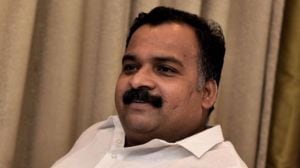SC upholds Maya appointment
BSP chief Mayawati and party colleague Satish Chand Mishra can breathe easy.

BSP chief Mayawati and party colleague Satish Chand Mishra can breathe easy. The Supreme Court today asserted that their appointments as UP Chief Minister and Cabinet Minister, respectively, are constitutional and legally valid.
Armed with several landmark rulings, even citing a debate that took place in the Constituent Assembly in 1949, the Bench presided by Dr Justice Arijit Pasayat clarified, 8220;There is no provision in the Constitution to make the appointment of the Chief Minister or a Minister, none of whom are the members of the State Legislature, illegal.8221;
Ashok Pandey, an advocate, had challenged both the appointments on the ground that they were disqualified under Article 1644 together with 1641 of the Constitution. Being sitting members of the Rajya Sabha, they were required to vacate their Parliament seats before being assuming the offices, he had argued.
However, the Bench, also comprising Justice P P Naolekar, dismissed the petition noting that there was no necessity for an MP to vacate his seat at the time of being made a CM or a minister. Article 1644, which required that a minister being elected to the legislature within six months of such appointment, applied only to a non-member, but not to an MP, it clarified.
Justice Pasayat writing for the Bench said, 8220;It is actually in the nature of a disqualification or restriction for a non-member who has been appointed Chief Minister or minister, as the case may be, to continue in office without getting himself elected within a period of six months8221;.
8220;The inevitable conclusion is that this petition is sans merit and deserves to be dismissed,8221; it added, while reiterating, 8220;We have not been shown any Article of the Constitution under which a person who is elected to a State Legislature is prohibited from being appointed as a Minister under Article 755.8221;
Further, the Bench clearly noted that the said Article is widely worded. 8220;It covers every person who is not a member of either House of the Parliament. Such a person can be appointed as a minister and can remain a minister only for a period of six consecutive months unless he is elected to a either House of Parliament within that period. If he is not elected, he shall cease to be a minister on the expiry of the six consecutive months.8221; The same provision is applicable to the Prime Minister, it added while recalling its decision in 1997 when the appointment of H D Devegowda was challenged.
- 01
- 02
- 03
- 04
- 05































